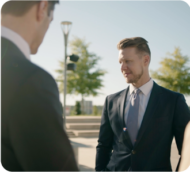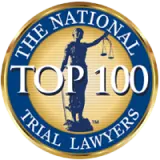ATV Injury Attorneys
Injured by an ATV or OHV? Our ATV Accident Attorneys Are Here to Help
If you’ve been injured in an ATV, OHV, quad bike or side-by-side vehicle accident, contacting an ATV accident attorney as soon as possible can make a major difference in your recovery, both physically and financially. ATV crashes often raise complicated questions about who’s at fault, whether it’s another rider, a manufacturer, or even a property owner. When an insurance company tries to reduce or deny your claim, an attorney can step in to protect your rights, negotiate with insurers, and pursue the full amount of compensation you deserve.
Besides immediate medical bills, ATV accidents can leave victims facing long-term issues like lost wages, ongoing rehabilitation, and pain and suffering. A lawyer helps ensure these damages are fully considered, while also managing the legal deadlines, paperwork, and procedures. Montlick’s attorneys have the expertise and resources to push back against insurance company blame-shifting tactics, to give you the best chance at a fair outcome, and time to focus on healing.
SEE IF YOU QUALIFY
Do you have a case?
Real Help Begins Here®

SEE IF YOU QUALIFY
Do you have a case?

Types of ATV and OHV Accidents
Riding all-terrain vehicles is a popular sport in Georgia and nationwide. Georgia in particular has a number of locations containing ATV trails, including U.S. National Forest trails at Chattahoochee-Oconee National Forest, Beasley Knob Trail System in Blairsville, and Clayton’s Oakey Mountain OHV trails. There are also private trails such as Iron Mountain Resort in Dahlonega, Durhamtown Off-Road Resort in Union Point, Highland Park Resort in Cedartown, Possum Creek Off-Road Park in Ray City and Moccasin Creek Off-Road Park in Blackshear.
Beyond recreational use, heavy duty off-highway vehicles (OHVs) or utility terrain vehicles (UTVs) are used on farms throughout Georgia for carrying supplies, towing trailers, traveling, and herding. Some OHV vehicles are eligible to be operated on county roads if they were manufactured after January 1, 2000 and properly equipped. They also must be registered with the state of Georgia and carry liability insurance. Operators are required to have a driver’s license.
However, ATV and OHV vehicles can pose a danger to inexperienced riders who lack the skills necessary to control their vehicle, especially on challenging or unfamiliar terrain. Riders new to this type of vehicle may have difficulty braking, steering, or navigating, often leading to rollovers or collisions. For this reason, operator inexperience is a leading cause of ATV crashes.
Excessive speed is another factor. Some ATVs and OHVs can operate at speeds of up to 75-80 mph. High speeds reduce a rider’s reaction time and make it hard to control the vehicle on uneven ground, tight turns, or when encountering an unexpected obstacle. Other reckless behaviors, like performing stunts or jumps, increase the risk of rollovers that can lead to serious injury.
There are many other conditions under which ATV accidents occur. For example:
- Driving on Paved Roads: Besides the risk of colliding with cars on paved roads, ATVs are specifically designed for off-road use. Their high center of gravity and low-pressure tires make them unstable and difficult to handle on paved surfaces, increasing the risk of rollovers.
- Carrying Passengers: Most ATVs are designed for a single rider. Carrying a passenger on a single-rider ATV can disrupt the vehicle’s balance, making it harder to control and increasing the chance of a rollover or passenger ejection.
- Operating Under the Influence: As with any other vehicle, operating an ATV while impaired by alcohol or drugs severely compromises a rider’s judgment, coordination, and reaction time, leading to a much higher risk of an accident.
- Lack of Safety Gear: Failing to wear a helmet is a major factor in the severity of ATV injuries, as head injuries are the leading cause of death and disability in these accidents. Lack of other protective gear, like gloves and boots, can also lead to serious injuries.
- Poor Maintenance: An improperly maintained ATV can suffer a mechanical failure, such as brake failure or a steering malfunction, which can cause a rider to lose control and crash.
- Terrain and Weather: Steep hills, large rocks, or deep ruts can be dangerous, especially for inexperienced riders. Other environmental hazards, like poor visibility due to weather or natural obstacles, can also contribute to accidents.
Winning Is What We Do. Caring Is Who We Are.™
Leading with compassion
At Montlick, compassion guides everything we do. We understand how overwhelming life feels after a serious injury, and our experienced attorneys are here to protect your rights and help your family rebuild.
Decades of service to our clients
Since 1984, Montlick has stood beside injured people and their families, recovering billions in compensation and providing the care and dedication our clients deserve.
Montlick Advocates for Clients Who are Victims of:
- Traumatic brain and spinal cord injuries
- DUI side-by-side vehicle accidents
- Off-highway vehicle collisions
- ATV product liability claims
Dangers from ATV and OHV Vehicles
The most recent accident data from the U.S. Consumer Product Safety Commission reveals an annual average of over 800 deaths, and an estimated 100,000 emergency department-treated injuries, involving OHVs. More than two-thirds of fatalities from these vehicles were suffered by ATV riders. The most common accident types are:
- Rollovers: When riders take a turn too sharply, drive on uneven or steep terrain, such as attempting to climb a steep hill, or perform a sudden maneuver, the ATV’s high center of gravity can cause it to tip over, crushing the rider or pinning them underneath the vehicle.
- Collisions: If a rider is operating the ATV at excessive speed, driving recklessly, or operating on challenging trails that make the ATV difficult to control, there is always a danger of hitting another ATV or a stationary object like a tree or fence.
- Ejections: A rider can be thrown from an ATV during a sharp turn, a collision, or after hitting a bump. Being ejected from the vehicle, especially at high speeds, can cause severe head and spinal cord injuries if the rider is not wearing a helmet.
- Rider or Passenger Fall from Vehicle: When a rider is inexperienced or is carrying a passenger on a single-rider ATV, there’s a risk that the rider or passenger will fall off the vehicle during a turn or when encountering a difficult patch of trail.
- Accidents to pedestrians: Because of the challenges driving these vehicles, pedestrians can fall victim to an ATV collision if the rider loses control of the vehicle.
Types of Injuries from ATV Accidents
Injuries suffered in an ATV or OHV accident can be severe and life-changing. They include:
- Traumatic Brain Injuries (TBI): A common injury, usually caused when a rider is ejected and hits their head. Even for a rider wearing a helmet, the force of a collision or rollover can be enough to cause a traumatic brain injury, the severity of which can range from a concussion to a severe brain injury with lasting cognitive and physical impairments.
- Spinal Cord and Neck Injuries: The sudden, violent jolting motion of a crash or rollover can cause severe damage to the neck and spine. These injuries can result in chronic pain, paralysis, and a permanent loss of mobility.
- Fractures and Broken Bones: Rollovers and ejections frequently lead to broken bones or fractures in the arms, legs, wrists, and collarbones. Weighing close to 1,000 pounds, if a heavy-duty ATV rolls over a victim, it can crush limbs, causing complex fractures that may require multiple surgeries to repair.
- Internal Organ Damage: Being crushed under or colliding with an ATV can cause internal bleeding and damage to vital organs like the liver, spleen, and kidneys. These injuries may not be immediately apparent, making them especially dangerous and requiring immediate medical attention.
- Chest and Abdominal Injuries: A rider can be thrown against the handlebars, dashboard, or other parts of the vehicle, leading to broken ribs, collapsed lungs, and other serious injuries to the chest and abdomen.
- Soft Tissue Injuries: Ejections and falls can cause severe lacerations, deep cuts, and abrasions from contact with the ground or sharp objects. Ligament tears and sprains are also common, particularly in the knees and ankles.
- Facial Injuries: If a rider is not wearing a full-face helmet, they are vulnerable to facial trauma. This can include broken facial bones, jaw fractures, and dental injuries.
What Are My Legal Options After an ATV Accident?
If you or a family member were injured while riding an ATV, or hit by an ATV, you may be entitled to compensation. Victims of ATV accidents may have the option to file a personal injury claim if another person’s negligence caused the crash. This can include situations where another rider was reckless, failed to follow ATV safety laws, or operated the vehicle in an unsafe manner. In these cases, compensation may cover medical bills, lost wages, pain and suffering, and property damage.
You may have a claim if you or a family member were injured while riding an ATV by:
- Another rider hitting your vehicle
- A rider under the influence of drugs or alcohol
- A rider who didn’t meet conditions for using an ATV
- Unsafe conditions at the site
- Vehicle failure – either a rented vehicle or your own
If the accident resulted from a defect in the ATV itself, victims may pursue a product liability lawsuit against the manufacturer or distributor. This can arise when design flaws, defective parts, or poor assembly cause the vehicle to malfunction. Additionally, companies may be liable for failing to provide adequate safety instructions or warnings.
When an ATV accident occurs on someone else’s property, victims may explore a premises liability claim. Property owners can be held responsible if unsafe conditions, poor maintenance, or hidden hazards contributed to the accident. This is particularly true when owners fail to warn riders of known dangers.
If the ATV was rented, the rental company might bear liability. Rental providers have a duty to maintain vehicles properly, ensure they are safe to operate, and give riders basic safety instructions. If they neglect these responsibilities, victims can pursue a claim for damages.
In many cases, victims can also seek compensation through various insurance claims. This may involve the at-fault party’s liability insurance, a homeowner’s insurance policy (if the accident occurred on private property), or dedicated ATV/recreational vehicle coverage. The availability of coverage depends on the specific policies involved.
When an ATV accident tragically results in death, surviving family members may be able to pursue a wrongful death claim as well as an estate claim on behalf of the deceased estate. Wrongful death and estate claims may allow recovery for, among other things, funeral and burial costs, pain and suffering of the deceased prior to their death, loss of financial support, and the emotional toll of losing a loved one.
If you’re injured while operating or supporting the use of an off‑highway vehicle (OHV) during your job duties in Georgia, you may be eligible to file a workers’ compensation claim, provided the injury “arose out of and in the course of employment.” That means the accident must occur while you’re performing work-related tasks or activities benefiting your employer.
Finally, victims should be aware that comparative or contributory negligence laws may affect their case. If the injured person was partially at fault — for example, by not wearing safety gear, riding in a restricted area, or being under the influence — their compensation could be reduced or denied. Georgia follows a modified comparative negligence doctrine, where the damages awarded to an injured person will be reduced to reflect their share of the liability as long as he or she was less than 50% responsible for the incident. For example, a person who was 20% to blame for his or her own injuries would only be able to collect 80% of the damages for their injury.
Staying Safe While Operating an ATV
Follow basic safety rules:
Passengers should never ride on a single-rider vehicle. Operators should always ride on designated trails at recommended speeds and never under the influence of alcohol or drugs. Young riders should always be supervised by adults.
Wear protective gear:
Riders should always wear a helmet, eye protection, gloves, and other gear padded to guard them in the event of an accident.
Follow manufacturer recommendations for young riders:
Riders under 16 should operate an ATV appropriate for their age and be supervised by an adult at all times. ATV manufacturers, in cooperation with the U.S. Consumer Product Safety Commission (CPSC), provide minimum age recommendations for their vehicles. These are based on the vehicle’s size, power, and handling characteristics.
- Ages 6-11: Should only operate youth-model ATVs with engines of 70cc or less.
- Ages 12-15: Should only operate youth-model ATVs with engines between 70cc and 90cc.
Take an ATV safety course:
The ATV Safety Institute offers an online safety course that is often a requirement for hands-on classes. Motowayz offers online and on-site classes in Dahlonega, GA. In the past, the Motorcycle Safety Foundation of Alpharetta has offered ATV safety training. For businesses that use ATVs, the Specialty Vehicle Institute of America offers ATV safety on the job training for employees.
What Types of Insurance Might Cover My ATV Accident?
Act Now
Our team will immediately start to gather all necessary evidence for a solid case. Contact us today to get started.
Standalone ATV/Off-Road Vehicle Insurance
This is a policy specifically for ATVs, UTVs, and other off-road vehicles. It is the most reliable way to protect yourself while riding on trails, private land, or, where allowed, on public roads. Standalone ATV/Off-road vehicle insurance policies will usually have options for:
- Liability Coverage: This is the most important type of coverage. It protects you financially if you are at fault for an accident that causes injury to another person or damages someone else’s property. This coverage can help pay for the other party’s medical bills, repair costs, and your legal fees if you are sued.
- Collision Coverage: This pays for the costs to repair or replace your own ATV if it is damaged in an accident, regardless of who is at fault. This includes hitting another vehicle, a tree, or rolling over.
- Comprehensive Coverage: This protects your ATV from non-collision-related damage or loss. This can include theft, vandalism, fire, weather damage, or hitting an animal.
- Medical Payments Coverage: This helps cover medical bills for you and any passengers on your ATV, regardless of who caused the accident.
- Uninsured/Underinsured Motorist Coverage: This protects you if you are in an accident with another off-road vehicle operator who is at fault but does not have sufficient insurance to cover your damages.
Optionally, these policies may include extras like towing or accessory coverage.
Homeowners Insurance
Your homeowners insurance may provide some limited coverage for ATV accidents that happen on your property. However, it usually won’t cover accidents that happen off your property, and it may have other restrictions on ATV use.
Auto Insurance
Your auto insurance policy generally does not automatically cover ATVs unless the vehicle meets state requirements for road use and is specifically listed on the auto policy.
Umbrella Insurance
This type of insurance provides extra liability coverage that can kick in after the limits of other insurance policies are exhausted. This insurance provides additional protection in case of serious injuries, but is a separate policy you need to purchase.
Specialty/Event Coverage
This is short-term insurance that you may be required to purchase to use or rent ATVs, for example, for guided tours or ATV parks.
Product Liability/General Liability Policies
General Liability policies taken out by the corporation that manufacturers the ATV may apply in instances where the allegation is that the ATV had a design, manufacturing or warning defect. These policies often provide for high limits of coverage and are very often supplemented by additional umbrella policies. An experienced personal injury attorney will know how to look for these policies and determine all applicable policies that the manufacturer may have available to cover a loss.
Your Questions Answered
ATV Injury FAQs
Generally, the statute of limitations for a personal injury claim is two years from the date of the accident. However, if the injured party is a minor, the clock typically doesn’t start until they turn 18. For a wrongful death claim, the statute is two years from the date of death. There are some exceptions; for example, if a government entity is involved, it might change the notice deadline. It’s always best to consult a personal injury attorney as soon as possible to ensure you are able to file a claim in time.
Yes, you can file a workers’ compensation claim in Georgia after an ATV accident if the injury happened while performing job duties. Workers’ compensation covers accidents that occur “in the course and scope” of employment — even if they involve vehicles like ATVs used for work tasks such as transportation, inspections, or land maintenance. However, the claim may be denied if the ATV was being used for personal reasons. Because ATV-related cases involve unique liability issues, it is always best to consult a workers’ compensation attorney to ensure your claim is handled properly and all potential benefits pursued.
A signed ATV rental waiver in Georgia does not always prevent you from seeking compensation for your injuries, but it can cause complications. Waivers generally protect companies from ordinary negligence, but they do not cover gross negligence, defective equipment, or reckless conduct. If your accident involved unsafe equipment or improper instructions, you may still have a legal claim despite the waiver. Consulting a Georgia personal injury attorney is recommended to determine whether your waiver is enforceable and to explore all legal options.


